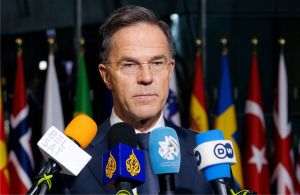The current economic crisis has lead to increasingly outspoken opinions on the odds of local revolts or even large scale wars. Information is flooding in and is backed by historical precedents, and the finding is simple: the backdrop is there, there is only one thing missing, the military confrontation. Tension floats in the air, and the opinions of the specialists only seem to increase it.
Prestigious Swiss bank UBS (Union des Banques de Suisse), which currently ranks third in the world, an institution known for its sober analyses, warned that from a historical point of view, monetary unions don"t collapse without going first through a civil war or other forms of authoritarian reactions.
UBS economist, Stephane Deo, said: "The fragmentation of the Eurozone would also generate political costs. Europe"s international influence would disappear. It also bears mentioning that almost no modern monetary union was dismantled without a military or authoritarian form of leadership, or even a civil war".
Sebastian Vlădescu, former Romanian finance minister, says that the idea of a war is current is natural, normal, almost logical. He added: "The world spent more than it made, and for years some have footed the bill for that consumption. If those who consume more than they produce will need to lower their consumption, then a solution will have to be found. Cutting wages and salaries could work once, but it can"t be done constantly in a democracy. Romania went through a dramatic adjustment of consumption between '81 and '89, but did so in a non-democratic environment. And if you can"t control anything domestically, a solution would be to introduce restrictions generated by some external actions, such as a major war somewhere. When, where, how - we can only speculate ".
• Polish minister: The collapse of the Eurozone could cause a war in Europe
The Polish Finance Minister, whose country currently holds the EU bi-annual rotating presidency of the EU, warned against the risk of war on the continent in the next ten years, if the Eurozone collapsed. He warned the members of the European parliament in Strasbourg that they need to act quickly to prevent a major threat to the EU. Discussing the UBS report, he said: "Undoubtedly, we are in danger. Europe is in danger".
The Polish Minister went as far as warning that two years from now, the rate of unemployment could double, "even in rich countries". He recounted, before the members of the European Parliament, a recent conversation he had with "an old friend, who presently leads a major bank". The Polish minister said: "We were talking about the Eurozone crisis. He told me: «You know, after all these political and economic shocks, it would be abnormal if we were able to avoid a war in the next ten years». A war, ladies and gentlemen. I am really thinking of getting a green card for my children in the United States".
• After predicting the world crisis, Roubini predicts global riots
Economist Nouriel Roubini, who was the first to speak about the current economic crisis, recently brought up the beginning of a world revolution, in the context of the escalation of the global crisis.
Due to a general in the general living standard, Roubini says social turmoil and street protests could happen: "The recent popular protests, in the Middle East and Israel, and all the way to Great Britain, as well as the increasing discontent in China, will soon generalize, in countries with advanced and emerging economies alike. And all of this will begin from a single point of view: rising poverty, high unemployment, inequality and lack of hope. Even the middle class of the world is seing its revenues and living standards shrink".
• Wikileaks: Băsescu was worried that Romania could be dragged into a military conflict with Russia
According to a cable published by Wikileaks, in a meeting of August 2008, Romanian president Traian Băsescu asked American senator Richard Lugar, in the context of the war between Russia and Georgia, whether NATO and the EU would support Romania in the case of a Russian provocation in Transnistria,.
According to American ambassador Nicholas Taubman, Traian Băsescu told senator Richard Lugar that he was worried about Russia recognizing Southern Osetia and Abhazia, in the context of the recognition by the US and the European countries of Kosovo, which started a process which threatened to unravel the international legal architecture and to create widespread instability in Europe.
At the time, Traian Băsescu spoke about Romania"s security vulnerabilities of at the Black Sea and about the implications of events in Georgia for the Republic of Moldova/Transnistria, claiming that any provocation by Russia against the "4.5 million of Romanian citizens" of the Republic of Moldova would place Romania in a serious dilemma.
The president said that the actions of NATO and of the EU against Russia must go beyond "statements" and that a more robust policy concerning the region of the Black Sea should include the repositioning of NATO military forces.






















































